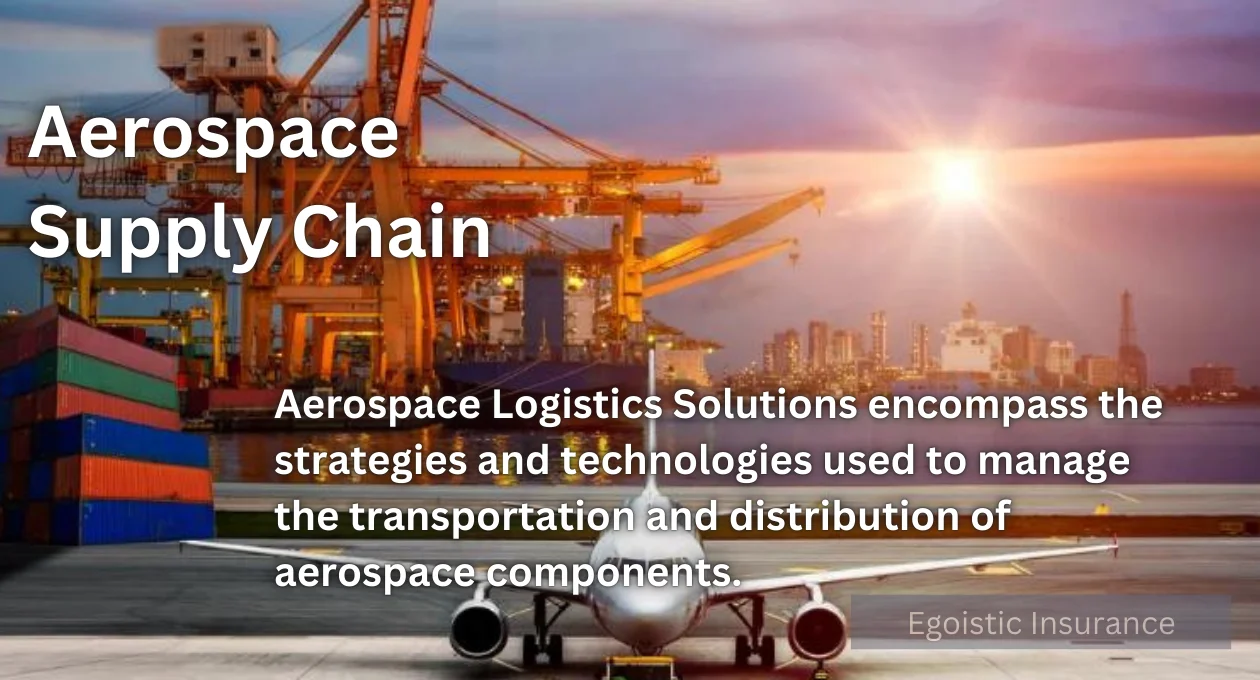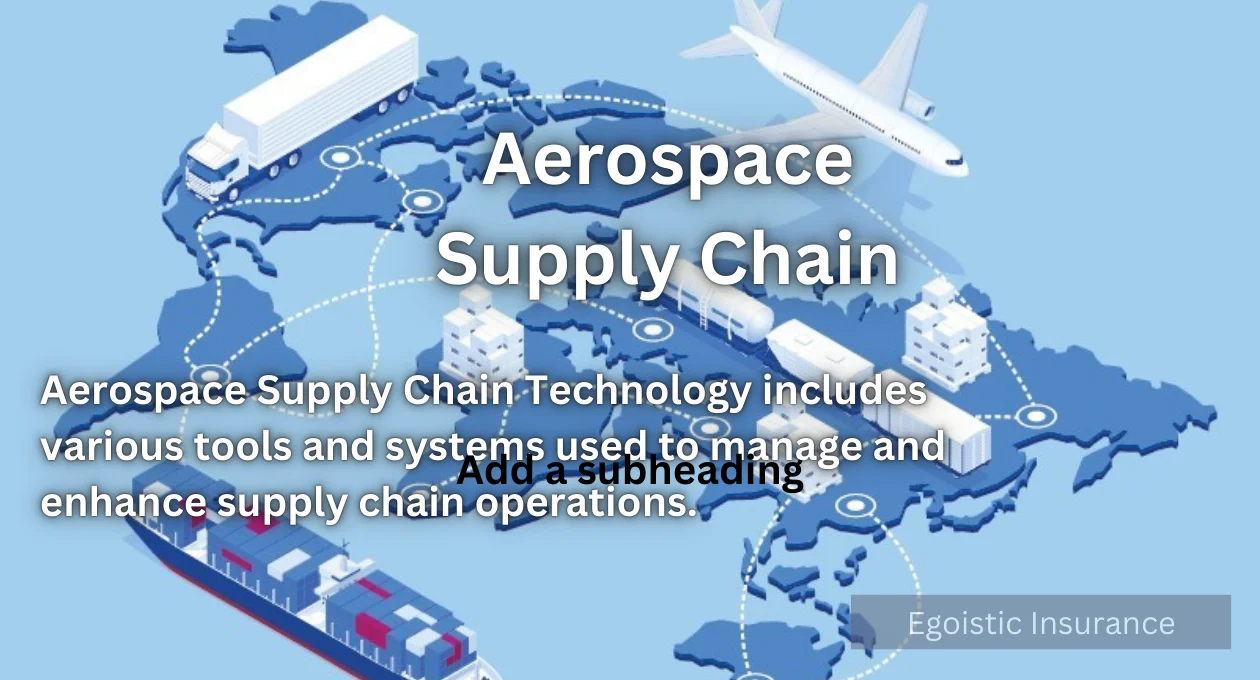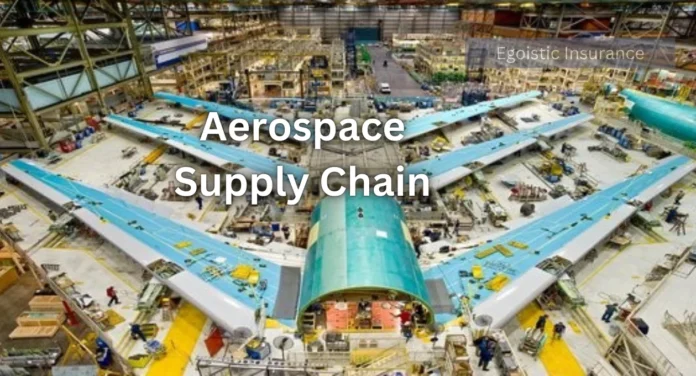The aerospace industry is one of the most complex and technologically advanced sectors in the world. At the heart of its operations is the aerospace supply chain, a network of processes and stakeholders that work together to produce the components and systems used in aircraft and spacecraft. This blog delves into various aspects of the aerospace supply chain, including management practices, trends, challenges, and technological innovations.
An essential factor in the aerospace supply chain is the collaboration among diverse stakeholders, including manufacturers, suppliers, and regulators. This interaction ensures that products meet strict safety and quality standards, which are paramount in the aerospace sector. Additionally, effective communication throughout the supply chain can significantly enhance efficiency and mitigate risks associated with production delays. As the industry evolves, embracing technological advancements will further streamline operations and foster innovation.
Aerospace Supply Chain Management
Aerospace Supply Chain Management (SCM) involves overseeing and coordinating the flow of materials, information, and finances as products move from suppliers to manufacturers to end-users. Effective SCM in aerospace is crucial due to the industry’s reliance on precision, safety, and regulatory compliance. It includes everything from sourcing raw materials to managing inventory and ensuring timely delivery of components.
In addition to traditional practices, the integration of advanced technologies is transforming aerospace supply chain management. Artificial intelligence and data analytics are empowering stakeholders to make informed decisions, optimising inventory levels and improving demand forecasting. Furthermore, blockchain technology is being explored to enhance transparency and traceability, ensuring that every component can be tracked throughout its lifecycle. These innovations not only bolster operational efficiency but also contribute to higher safety standards and greater accountability in the aerospace supply chain.
Aerospace Supply Chain Trends
Current trends in the aerospace supply chain reflect broader shifts in technology and market demands. Key trends include increased digitalization, the adoption of advanced analytics, and a focus on sustainability. As aerospace companies seek to improve efficiency and reduce costs, they are leveraging these trends to stay competitive and meet evolving customer expectations.
The emphasis on sustainability within the aerospace supply chain is becoming increasingly prominent as companies face pressure from regulators and consumers alike. Various initiatives aim to reduce carbon footprints, such as sourcing eco-friendly materials and implementing energy-efficient manufacturing processes. Moreover, partnerships between companies and research institutions are fostering the development of innovative technologies that promote greener practices. This commitment not only enhances corporate responsibility but also aligns with the growing demand for environmentally conscious products in the aerospace industry.
Aerospace Logistics Solutions

Aerospace Logistics Solutions encompass the strategies and technologies used to manage the transportation and distribution of aerospace components. This includes warehousing, inventory management, and transportation planning. Efficient logistics solutions are critical for ensuring that parts arrive on time and in the correct condition, minimizing delays and costs associated with disruptions.
The future of the aerospace supply chain is likely to be shaped by an increasing emphasis on resilience and adaptability. As global events and supply chain disruptions have highlighted vulnerabilities, companies are re-evaluating their strategies to incorporate more flexible approaches. This includes diversifying suppliers and investing in local manufacturing capabilities to mitigate risks. By fostering a more agile supply chain, the aerospace industry can better navigate challenges and respond swiftly to changing market dynamics, ensuring sustained growth and innovation.
Aerospace Supply Chain Optimization
Aerospace Supply Chain Optimization involves improving the efficiency and effectiveness of the supply chain processes. This can be achieved through strategies such as streamlining operations, reducing waste, and enhancing supplier collaboration. Optimization efforts aim to reduce lead times, lower costs, and improve overall performance in the supply chain.
The role of technology in aerospace supply chain optimization cannot be overstated. Cutting-edge solutions like the Internet of Things (IoT) enable real-time tracking of components throughout the supply chain, leading to enhanced visibility and decision-making capabilities. Machine learning algorithms can predict maintenance needs and potential disruptions, allowing companies to proactively address issues before they escalate. As these technologies continue to mature, their integration will be vital for maintaining competitive advantages and achieving operational excellence in the aerospace sector.
Aerospace Parts Supply Chain
The Aerospace Parts Supply Chain refers specifically to the network involved in the production and distribution of individual aerospace components. This supply chain is highly specialized and requires strict adherence to quality standards and regulatory requirements. Managing the parts supply chain effectively is essential for maintaining the safety and reliability of aerospace products.
Effective management of the aerospace parts supply chain also involves fostering strong relationships between suppliers and manufacturers. By collaborating closely, stakeholders can align their objectives, share vital information, and respond more swiftly to changing demands. This synergy not only improves efficiency but also enhances innovation, as partners can work together to develop new technologies and processes. As the aerospace industry continues to grow, prioritizing these relationships will be crucial for ensuring sustainable success.
Aerospace Supply Chain Disruptions
Aerospace Supply Chain Disruptions can occur due to various factors, including natural disasters, geopolitical events, and supply shortages. Such disruptions can have significant impacts on production schedules and costs. Effective risk management strategies and contingency planning are crucial for mitigating the effects of these disruptions.
Collaboration within the aerospace supply chain is increasingly vital as companies confront a complex landscape of challenges. Fostering partnerships across different stakeholders, from suppliers to manufacturers, enables the sharing of knowledge and resources, ultimately driving innovation. By leveraging collaborative platforms and communication tools, organizations can streamline processes and enhance responsiveness to market fluctuations. This interconnected approach not only strengthens the supply chain but also cultivates a culture of continuous improvement, positioning businesses for sustained success.
Aerospace Supply Chain Challenges

The aerospace supply chain faces several challenges, including managing complex global networks, ensuring compliance with stringent regulations, and addressing supply chain vulnerabilities. Challenges also include adapting to rapid technological changes and meeting increasing demand for more sustainable practices. Addressing these challenges requires a strategic approach and innovative solutions.
Maintaining agility in the aerospace supply chain is paramount to overcoming challenges and seizing opportunities. Companies must adopt flexible strategies that allow for quick adaptations to shifts in demand and supply conditions. Emphasizing training and development for the workforce can further enhance this adaptability, ensuring that employees are equipped with the skills needed to respond effectively to evolving market needs. Ultimately, fostering a culture of continuous improvement will enable organizations to thrive in a dynamic environment, positioning them as leaders in the aerospace industry.
Aerospace Industry Supply Chain
The Aerospace Industry Supply Chain is a broad term encompassing all the processes and stakeholders involved in the production of aerospace products. This includes everything from raw material suppliers to manufacturers, assembly plants, and end-users. Understanding the intricacies of the industry supply chain is essential for optimizing performance and ensuring product quality.
In the aerospace industry, innovation plays a critical role in shaping the future of supply chain processes. Embracing advancements such as additive manufacturing and advanced materials can lead to lighter, more efficient components that enhance overall aircraft performance. Furthermore, the integration of digital twins allows companies to simulate and optimize operations, reducing costs and minimizing errors. As competition intensifies, staying ahead of technological trends will be indispensable for aerospace manufacturers seeking to maintain a competitive edge.
Aerospace Supply Chain Strategies
Aerospace Supply Chain Strategies involve the planning and execution of methods to improve supply chain efficiency and effectiveness. Strategies may include diversifying suppliers, investing in technology, and developing strong relationships with key partners. Implementing effective strategies helps companies navigate the complexities of the aerospace supply chain and achieve their business goals.
In addition to traditional supply chain strategies, leveraging data analytics can provide aerospace companies with valuable insights for informed decision-making. By analyzing patterns and trends within supply chain data, businesses can identify areas for improvement and streamline operations. This proactive approach not only enhances efficiency but also aids in forecasting future demands, allowing companies to maintain optimal inventory levels. As the industry evolves, embracing data-driven methodologies will be crucial for achieving sustained growth and maintaining a competitive edge.
Aerospace Supply Chain Technology

Aerospace Supply Chain Technology includes various tools and systems used to manage and enhance supply chain operations. This includes software for inventory management, advanced analytics, and automation technologies. Leveraging these technologies helps improve visibility, accuracy, and efficiency throughout the supply chain.
Efficient logistics management is vital in the aerospace supply chain, as it directly affects delivery timelines and overall operational effectiveness. By optimizing transportation routes and employing advanced tracking systems, companies can ensure timely deliveries while minimizing costs. Streamlining logistics also allows for better coordination among various stakeholders, reducing delays caused by miscommunication. As the industry continues to evolve, adopting innovative logistics solutions will be essential for sustaining competitiveness and meeting customer expectations.
Aerospace Supply Chain Analytics
Aerospace Supply Chain Analytics involves the use of data and analytical tools to gain insights into supply chain performance. By analyzing data on supply chain operations, companies can identify trends, forecast demand, and make informed decisions to improve efficiency and reduce costs. Analytics play a crucial role in optimizing the aerospace supply chain.
Incorporating sustainability measures into the aerospace supply chain is becoming increasingly important for modern businesses. Companies are now prioritising eco-friendly practices, such as reducing waste and emissions, to meet regulatory standards and consumer expectations. Implementing circular economy principles can lead to more efficient resource use and greater environmental responsibility. As a result, embracing sustainability not only enhances corporate reputation but also drives innovation, creating new opportunities for growth within the industry.
Aerospace Supplier Management
Aerospace Supplier Management focuses on overseeing and optimizing relationships with suppliers. This includes evaluating supplier performance, ensuring compliance with standards, and fostering collaboration. Effective supplier management is key to maintaining a reliable and high-quality supply chain.
Establishing robust supplier relationships is essential for the success of the aerospace supply chain. By engaging in regular communication and feedback loops, companies can ensure that suppliers align with their quality and performance standards. Additionally, fostering collaboration can lead to innovation, as suppliers may contribute valuable insights and advancements in technology. Ultimately, a strong supplier network not only enhances operational efficiency but also positions companies to better navigate the complexities of the aerospace industry.
Aerospace Procurement Strategies
Aerospace Procurement Strategies involve the methods used to acquire the goods and services needed for aerospace production. This includes sourcing suppliers, negotiating contracts, and managing purchasing processes. Strategic procurement helps ensure that the necessary materials and components are available when needed and at the best possible cost.
In the ever-evolving landscape of the aerospace industry, effective procurement requires not only strategic sourcing but also a keen understanding of market trends. As materials and components become increasingly specialized, aerospace companies must continually assess their supply chain resources to ensure they remain competitive. Collaborating with suppliers to anticipate changes in demand is crucial, as it allows firms to mitigate risks associated with supply disruptions. Furthermore, investing in supplier development programs can enhance shared capabilities and foster innovation, ultimately leading to improved product quality and operational excellence.
Aerospace Supply Chain Integration
Aerospace Supply Chain Integration refers to the process of aligning and coordinating various components of the supply chain to work together seamlessly. This includes integrating systems and processes across different stakeholders to improve efficiency and reduce redundancies. Effective integration helps streamline operations and enhance overall supply chain performance.
In the aerospace industry, leveraging advanced technologies such as blockchain can significantly enhance supply chain transparency and security. By creating a decentralized ledger, companies can track the provenance of materials, ensuring compliance and reducing the risk of counterfeit products. This level of visibility fosters trust among stakeholders and streamlines the verification processes. As the demand for accountability grows, adopting such innovative solutions will be vital for sustainable and efficient aerospace operations.
Aerospace Manufacturing Supply Chain

The Aerospace Manufacturing Supply Chain is concerned with the production and assembly of aerospace components and systems. It includes all stages from the initial design and material sourcing to final assembly and testing. Managing the manufacturing supply chain effectively is crucial for ensuring product quality and meeting production deadlines.
An agile manufacturing supply chain is essential for responding swiftly to market changes and customer demands. By adopting lean manufacturing principles, aerospace companies can minimize waste and enhance production efficiency. This approach not only streamlines operations but also enables faster turnaround times for delivering products. As the industry increasingly shifts toward customization and shorter lead times, an agile manufacturing strategy will be key to maintaining a competitive edge.
Aerospace Supply Chain Innovations
Aerospace Supply Chain Innovations involve new ideas and technologies aimed at improving supply chain operations. Innovations may include advanced manufacturing techniques, new materials, and cutting-edge technologies such as artificial intelligence and blockchain. Staying ahead of the curve with these innovations helps aerospace companies enhance their supply chain performance and competitiveness.
Embracing digital transformation is essential for aerospace companies aiming to enhance their supply chain operations. By incorporating data analytics and automation, businesses can improve forecasting accuracy and streamline procurement processes. Furthermore, investing in digital tools facilitates better collaboration among stakeholders, ensuring that information flows seamlessly throughout the supply chain. This modernization not only fosters efficiency but also positions companies to adapt more readily to industry challenges and customer demands.
FAQs
What is Aerospace Supplier Management?
Aerospace Supplier Management involves overseeing and optimizing relationships with suppliers to ensure performance, compliance, and collaboration, ultimately maintaining a reliable and high-quality supply chain.
Why is Strategic Procurement important in Aerospace?
Strategic Procurement is crucial as it ensures the acquisition of necessary goods and services at the best possible cost while adapting to market trends and securing supply chain resources.
How does Supply Chain Integration enhance performance?
Supply Chain Integration aligns and coordinates various components of the supply chain, utilizing advanced technologies to improve efficiency, reduce redundancies, and enhance overall transparency among stakeholders.
What role does agility play in Aerospace Manufacturing?
Agility in Aerospace Manufacturing allows companies to swiftly respond to market changes and customer demands, helping to minimize waste and improve production efficiency through lean manufacturing principles.
How can Innovations impact the Aerospace Supply Chain?
Innovations introduce new ideas and technologies that improve supply chain operations, such as advanced manufacturing techniques and digital transformation, thereby enhancing competitiveness and overall performance.
Conclusion
In conclusion, the aerospace supply chain is a complex and multifaceted ecosystem that requires strategic management, integration, and continuous innovation to thrive in a competitive market. As the industry faces evolving challenges and customer demands, aerospace companies must prioritize effective supplier management, strategic procurement, and agility in manufacturing processes. Embracing advanced technologies like digital transformation, blockchain, and data analytics will be vital in enhancing operational efficiency and transparency. By fostering collaboration among stakeholders and remaining adaptable to market trends, aerospace businesses can position themselves for success and sustainability in the years to come.
Sustainability is becoming increasingly important in the aerospace industry as companies look to reduce their environmental impact. Implementing eco-friendly practices, such as the use of lightweight materials and energy-efficient manufacturing processes, not only benefits the planet but also enhances overall operational efficiency. By prioritizing sustainability, aerospace firms can appeal to environmentally conscious consumers and stakeholders, positioning themselves as leaders in responsible manufacturing. This focus on greener practices is expected to reshape the supply chain dynamics and drive innovation across the industry.
For more interesting information keep visiting egoisticinsurance.online


